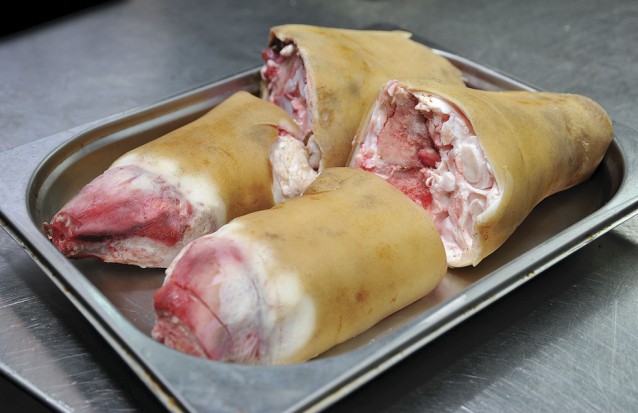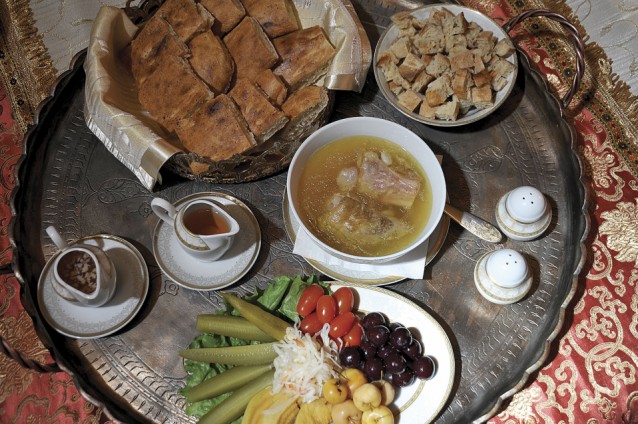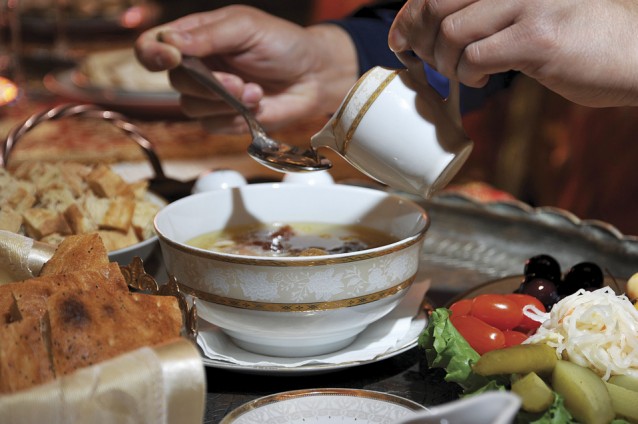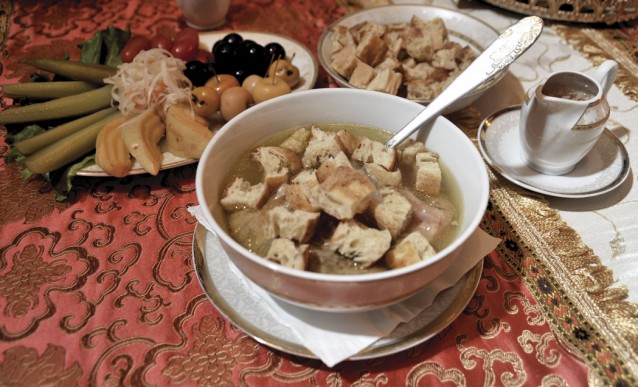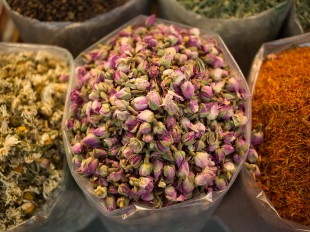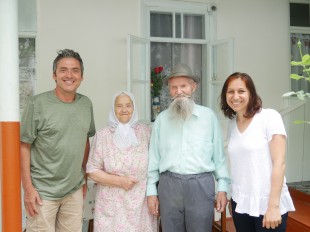Ask any Azerbaijani what is their signature winter dish and the response is likely to be khash, a soup made from stewed sheep or cow’s trotters. For some medicinal for others repulsive, this historical Azerbaijani tradition is a frequent divider of opinions, as long-time Baku resident Peter Turner recently found out…
By the time I first tried khash, the anticipation had long been building. You have to try it, Azerbaijani friends and colleagues had repeatedly told me. More than just a dish, it was also a remedy - for ailments as diverse as the common cold and broken bones - and an institution: this was where (real) men gathered. I was also aware, of course, of its alternative reputation as a gastronomic atrocity. So when eventually invited to a small khash gathering of Azerbaijanis and foreigners, I felt both accepted and tested.
The first thing to decide was the time. Shall we say nine-ish? I suggested.
Nine?! said Mahammad, a diplomat by training and, therefore, someone experienced at observing the effects of khash on non-Azerbaijanis, but this is a breakfast food.
Exactly. You must eat it first thing in the morning, said my journalist friend Eldar.
The timing issue became competitive. Let’s say eight, suggested Mahammad. But Eldar thought that was too late, and suggested seven. We wouldn’t fully appreciate it as late as eight. Mahammad upped the stakes. He was prepared to meet as early as we liked: his earliest memories included khash with an uncle from Ganja at hours so early that they could barely be represented numerically. The party now seemed in danger of regressing into the past, and I was concerned we might find ourselves breakfasting alongside Shah Ismail Khatai, Babek, and other warrior heroes of distant Azerbaijani history.
As a concession to me, they reluctantly agreed to 6:30, warning me that such a late meeting could not be considered “the full experience.” The venue, Khingal House, was on the wrong side of town. I set my alarm for 5:30.
When the alarm went off, I didn’t want to go. My wife was still sleeping. Outside, it was snowing – the coldest November in years. Our shower is always a struggle. Although shiny and new, it emits water at completely unpredictable temperatures and speeds; sometimes the kitchen tap must also be on; sometimes it disrupts it, and fifteen minutes can be lost running between the two rooms. Countless plumbers have come, shrugged, and left baffled. By the time I’d had a tepid shower, I was late and had to get a taxi from outside my building.
The taxi driver had heard neither of Khingal House nor of the street it was on, but approved so strongly of my expedition that he agreed to take on the job. Soon we were driving round and round the Nizami area asking strangers for directions. There was plenty of time to reflect on the historical origins of the famous dish, which, he told me, belonged to a distant, folkloric past – it was nothing less than a foodstuff of the nomadic Turks who once roamed the steppes with tents and animals. But Baku’s love affair with khash dated to the first oil boom in the 19th century when, the driver told me, it developed a special relationship with his profession. Drivers of phaetons and other horse-drawn carriages washed it down with vodka to fortify themselves against the early morning cold.
Khingal House turned out to be a small café hidden below pavement level which helped explain why so few residents of the area had heard of it. Mahammad and Eldar were already waiting; the foreigners, including Visions editor Tom Marsden, were still trickling in. But already in place was Mark Elliott, legendary writer of the definitive English-language guidebook to the country. Amazingly, despite being a travel veteran, this was to be his first experience of khash. I’ve been putting it off for years, he said.
When it arrived, the smell struck first. An agricultural steam rose from the bowls. The broth itself was “gluey” – exactly as it should be, according to Eldar – and formed a film on some parts of the surface. It was difficult at first to identify its contents with anatomical precision. Skin and fat wobbled and glistened, then dangled from the spoon and reverberated between the teeth. A knuckle clinked.
It is exactly, exactly, as I imagined it, Mark kept repeating.
He sprinkled it with the garlic sauce and vinegar. We poured vodkas and drank to Azerbaijan.
Tom said: I can’t go on, and pushed his bowl towards me.
But I loved it – a rich, delicious, robust flavour. I finished my bowl. I even sucked the knuckles clean. It turns out that a knuckle has a structural perfection only visible when it is no longer swathed in boiled fat. I finished Tom’s bowl, and then Mark’s. There was more vodka, and I was paid what might be, in khash terms, the ultimate complement:
You look like M. Rostropovich said Eldar. Like you, he loved khash. We googled the famous Soviet cellist – a native of Baku - and there was indeed a resemblance. Once he flew in from Moscow before a concert, ate five bowls, and had to receive emergency medical treatment. I, on two and a half bowls and with a similar face, felt like the guardian of a tradition.
Heading back out into the cold rush hour, everyone declared themselves thoroughly refreshed and vivified, even those who had found the dish itself repulsive. One’s oesophagus had been repeatedly warmed by each meaty, boozy, reflux. I returned home, appalling. My wife, now awake and trying to make the shower work, angled her face away from mine, wincing.
Üstü bəzək altı təzək say Azerbaijanis (finery on top, dung below), an expression used for anything whose glamorous appearance disguises a dysfunctional interior. Our temperamental shower exemplifies the expression perfectly. And therein, perhaps, lies the true significance of khash: it is the antonym – indeed, the antidote – to Üstü bəzək altı təzək, to our modern world of appearances in which food, like so much else, is endlessly beautified and photographed. Khash – a joyous outlier in an otherwise elegant culinary tradition, an unapologetic divider of opinion – makes no concession to visual beauty. And yet despite this, or rather, because of it, few dishes command such love, loyalty, and pride.
About the author: Peter Turner is a British historian who teaches at ADA University.